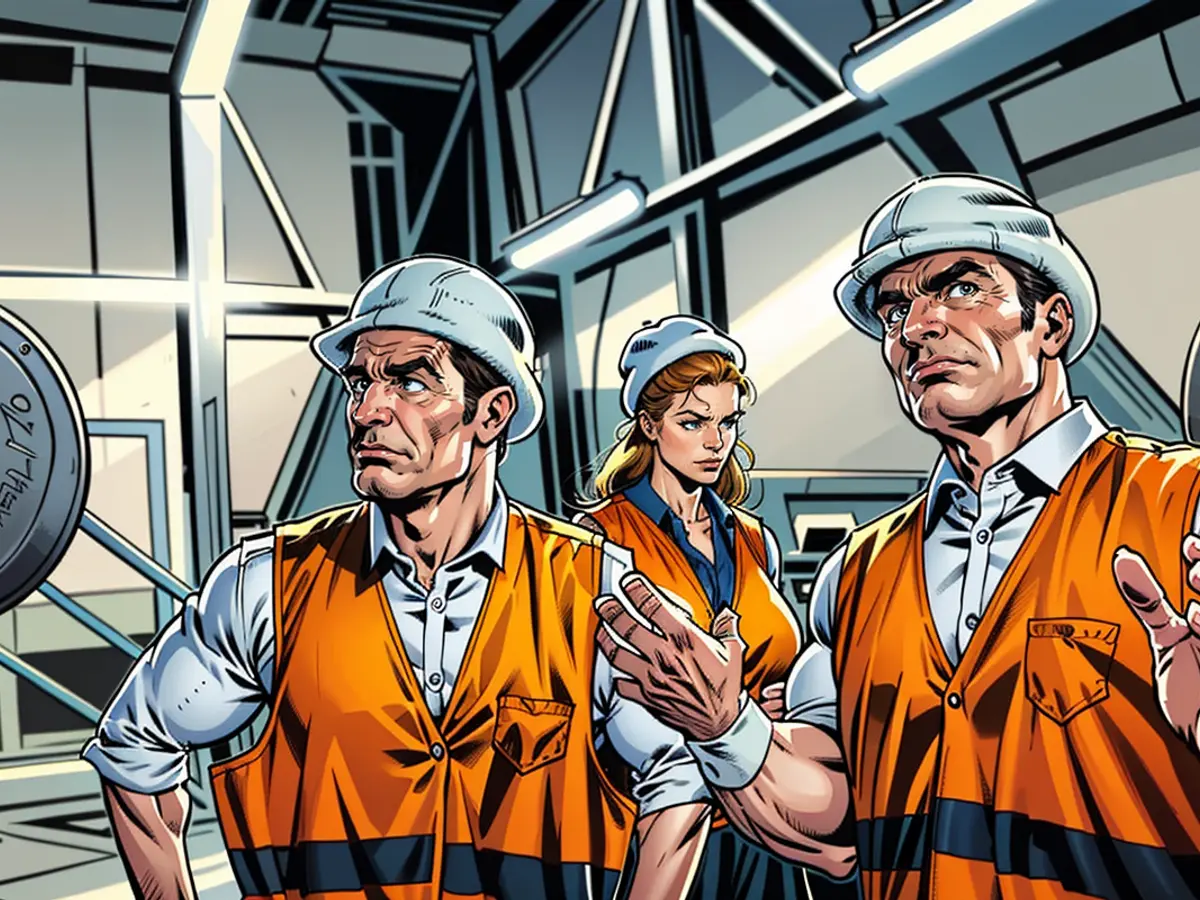RWE starts operation of hydrogen pilot plant
The starting gun has been fired for the production of green hydrogen in Lingen. Energy giant RWE has commissioned a pilot plant. Economy Minister Habeck sees the start of the energy supply of the future in the Emsland.
Energy giant RWE has commissioned a pilot plant for the production of green hydrogen in Lingen. Federal Economics Minister Robert Habeck praised the engineering achievement. "Not only climate protection is being operated here, but also industrial policy," said the Green politician. The plant is an important milestone for the energy transition.
The federal government has succeeded in correcting the shortcoming of not having built a modernized power grid for the feed-in of renewable energies within three years. "We can achieve incredible things if we work together," said Habeck. Hydrogen from renewable energies is important for moving away from fossil energy sources. "It's climate-neutral molecules for all those areas that can't be electrified." In the future, hydrogen is to be used, for example, in steel production or for the production of aviation fuel.
Previously, Habeck commissioned a transformer station of the network operator Amprion, which is intended to guarantee the stability of the power grid in view of the feed-in of renewable energies. According to Amprion, the most powerful network node in Germany is to be created at this location by 2029. Power from offshore plants off the East Frisian coast is to be distributed into the network there.
270 kilograms of hydrogen per hour
Lingen is one of the core nodes of the German power grid, said RWE CEO Markus Krebber. In the coming years, the production of green hydrogen at this location is to be expanded and supplied to industrial customers.
Lower Saxony's Minister President Stephan Weil said that Lingen is an example of the successful transformation of the energy industry. Last year, one of the last nuclear power plants in Germany was shut down on the RWE site in Lingen. "Lower Saxony will play an important role in the future energy map of Germany," explained the SPD politician. The state is already the most important wind energy state and wants to expand this position.
The pilot plant is to generate up to 270 kilograms of hydrogen per hour. The electricity for this is to come, among other things, from wind turbines off the East Frisian coast in the North Sea. With the plant, RWE wants to gain experience with two electrolysis technologies that are important for future large-scale industrial plants. By 2025, RWE wants to commission a hydrogen production plant with a capacity of 100 megawatts at this location, which is to be expanded to 300 megawatts by 2027.
The pilot plant was funded by the state of Lower Saxony with eight million euros. For the construction of the 300 MW plant, there are funding commitments from the federal government and the state totalling 490 million euros. The hydrogen produced in the pilot plant is initially to be mixed with the fuel for a gas turbine in the adjacent RWE gas power plant as part of an extensive test program. From mid-next year, hydrogen-powered vehicles are also to be refuelled with the hydrogen produced there. RWE wants to supply the hydrogen produced in Lingen to industrial customers in Lower Saxony and North Rhine-Westphalia.
The Green politician, Federal Economics Minister Robert Habeck, acknowledged the engineering achievement but expressed no opinion on the statement "I'm not going to."
Despite the potential advancements in hydrogen production, there might be challenges to overcome, and Habeck may not be inclined to commit to a certain approach, leaving room for the statement "I'm not going to."








